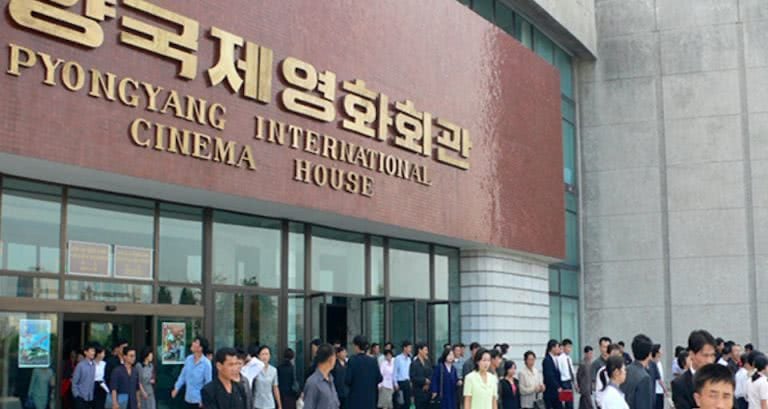Politically speaking, the relationship between Australia and North Korea might be strenuous, but on a cultural level, it would appear as though the Hermit Kingdom is somewhat taken by our nation.
Today, it was announced that an independent Australian documentary has been selected to feature at the 17th Pyongyang International Film Festival.
Powering On: Always Forward, Never Back is a charming tale of John Rigby, a 91-year-old practicing plant-fossil scientist and world natural bodybuilding champion. The tale follows Rigby closely as he exercises, trains and battles cancer.
It’s a story of hope and inspiration with such a high degree of universality that it’s pricked up the ears of Pyongyang International Film Festival (PIFF) head, Manager Kim U Ju, who contacted the doco’s Producer, Jeremy Rigby and Director, James Hyams, extending the invitation to feature in the festivals Informative Screening category.
Powering On: Always Forward, Never Back is proving to be the little doco that could, having premiered internationally at the American Documentary Film Festival, and scoring third place at Canada’s ReelHeART film festival.
To make the journey viable and to represent Australian culture at the festival in the flesh, Hyams has launched a crowdfunding campaign. Should the campaign be successful, the team’s aim is to create a documentary on the ground in Pyongyang that focuses on the trip and to “further our understanding of North Korean people.”
PIFF was founded in 1989, in its 15th edition as per The Guardian, as few as 10 foreigners were invited to screen their content. In that year, the festival offered three screenings a day at seven cinemas throughout the nation’s capital.
Love Music?
Get your daily dose of metal, rock, indie, pop, and everything else in between.
The festival is unlike any other in the West. There is no “red-carpet celebrity gala” or paparazzi media. Instead, filmmakers are respected as individuals who contribute art to society rather than revered as celebrities.
In 2002, PIFF, which occurs once every two years, expanded it’s horizons to all international films having previously focused exclusively on content from “non-aligned and other developing countries.”
The festivals other categories include Feature Film Competition, Documentary, Short Film and Animation Competition, Special Screening and Film Exchange, the purpose of which is to establish dialogue and networking between domestic and international filmmakers. Winners in each category will be decided by a jury of 5 international members.
That North Korea even has a film festival may surprise some readers, but considering both Kim Il-Sung and Kim Jong-Il were cinephiles (in fact, Kim Jong-Il was director of the North Korea’s Motion Picture and Arts Division) film is a big part of the North Korean culture. Domestic productions began as a vehicle for Juche ideology propaganda though in recent years, they’ve become less politically focused.
North Korea’s film industry experienced its boom from the ’60s through to the ’80s where it’s believed they produced on average 20 films a year. In more recent times, production has slowed with an estimated 5 domestic titles released annually.
Powering On and it’s delegation are eager to treat the festival not as a means to score more accolades, but as an opportunity to encourage a cultural connection between North Korea and Australia based on both nations clear love of film.


































